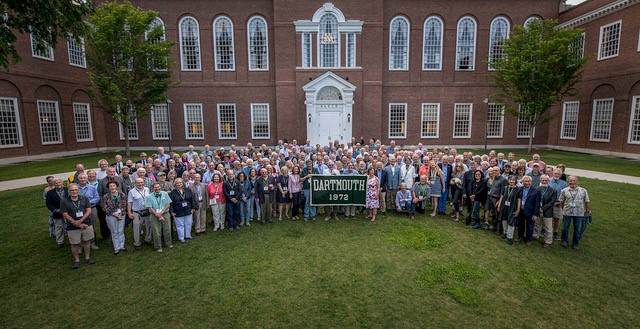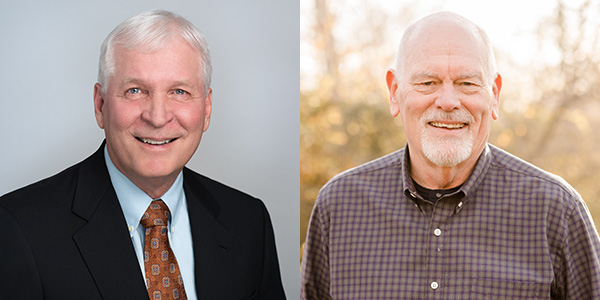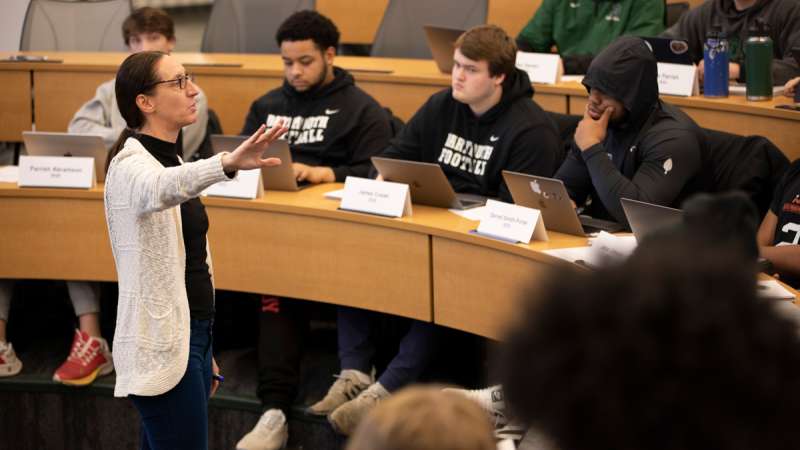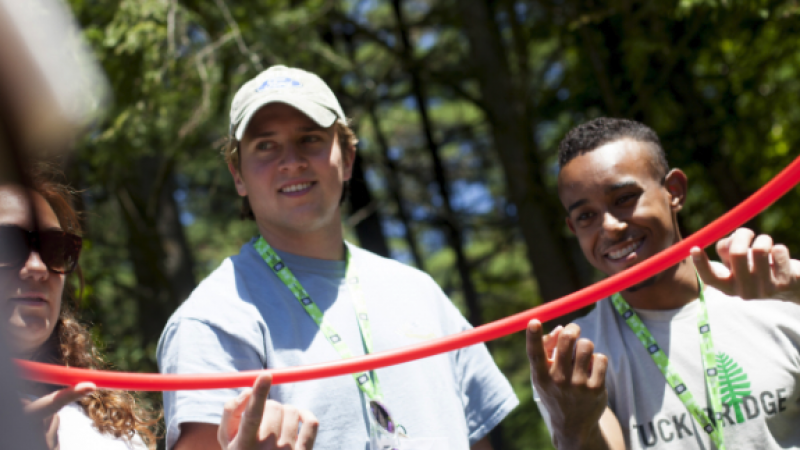
D’72 Class Continues Legacy of Supporting Bridge Student Veterans
When members of the Dartmouth Class of 1972 began brainstorming how they could band together and support their alma mater in a meaningful way, an idea emerged that “just seemed right.”
Their distinction as a Vietnam-era class and the example set by Dartmouth President Emeritus James Wright—who worked tirelessly to create a welcoming environment for military veterans during his presidential tenure from 1998 to 2009—inspired them to fund a scholarship that supports Dartmouth veteran participation in the Tuck Business Bridge program.
Gary Dicovitsky D’72 and Joseph Davis D’72 first pitched the idea to their classmates, including Bill Price D’72, who was serving as president of the Class Executive Committee at the time.

Gary Dicovitsky D’72 (right) and Joseph Davis D’72 (left)
“Looking back at our time on campus, the war was a really polarizing topic and a lot of us felt like we didn’t properly thank veterans for their service and sacrifice,” says Davis, current president of the Class Executive Committee. “This was an opportunity that really struck a chord for our class and was something we could all rally behind.”
Since beginning their support for Tuck Bridge nearly a decade ago, the D’72 class has provided funding for seven Dartmouth student veterans to attend the program, which imparts essential business skills and hands-on leadership training during a three-week intensive experience. With their most recent gift, the class has committed to continuing their support for at least four additional years.
“We deeply appreciate the Dartmouth Class of 1972’s longstanding generosity,” says Lisa Tedeschi, executive director of undergraduate programs at Tuck. “Veteran students face unique barriers accessing a program like Tuck Bridge and we all benefit from the unique perspective and experience they bring.”
The partnership between the class of 1972 and Tuck Bridge was influenced by President Emeritus Wright’s substantial efforts to support student veterans, but Richard Mosenthal D’74 also played a key part in bringing the groups together. Among other roles, Mosenthal previously served as director of strategic business development at Tuck and helped launch the first Tuck Bridge pilot program in 1997. When it came to pitching D’72s on Tuck Bridge, he could speak to its impact in ways few others could.
“Observing the transformational power of this experience for these worthy veterans has been incredibly rewarding,” says Mosenthal. “For me, the ‘cherry on top’ of my involvement with the Bridge program was working with the class of ’72 on this important initiative.”
D’72s have also received testimonials from their veteran student beneficiaries. Many have leveraged the experience to launch rewarding careers in industries like health care and technology and all have lauded the skills, confidence, and expanded network they gained from the program—none of which would have been possible without the class’s generous support.
“It’s been humbling to read the testimonies of these students and witness the value they’ve received from Tuck Bridge,” says Dicovitsky, chair of gift planning on the Class Executive Committee. “We all know they have sacrificed and supported us, so it’s a privilege to do something for them.”


